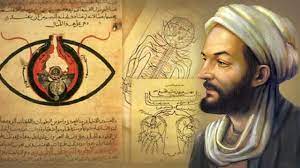Science from Islamic point of view
The Islamic Golden Age refers to a remarkable period in Islamic civilization, characterized by scientific, economic, philosophical, cultural, and scholarly achievements. Let’s delve into the details:
- Time Span:
- Key Aspects:
- Advancements in Mathematics and Sciences: During this period, scholars made significant strides in mathematics, astronomy, medicine, and other scientific disciplines.
- House of Wisdom: The reign of Abbasid caliph Harun al-Rashid marked the beginning of the Golden Age. The House of Wisdom in Baghdad became a hub for scholars from across the Muslim world, translating classical knowledge into Arabic and Persian 1.
- Cultural Flourishing: The Islamic Golden Age witnessed flourishing arts, commerce, and science throughout North Africa, the Middle East, Central Asia, and Southern Europe 3.
- Notable Figures and Achievements:
- Ibn Taymiyyah: A prominent medieval scholar known for his rigorous approach to Islamic jurisprudence and theology.
- Imam al-Ghazali: A philosopher, theologian, and mystic whose writings influenced Sufism and ethics.
- Ibn Rushd (Averroes): A polymath who contributed to philosophy, medicine, and jurisprudence.
- Ibn Sina (Avicenna): A Persian scholar whose works spanned various fields.
- Imam Malik ibn Anas: Founder of the Maliki school of jurisprudence.
- Imam Shafi’i: Laid the foundations for the Shafi’i school of jurisprudence.
- Imam Abu Hanifa: Founder of the Hanafi school of jurisprudence.
- Shaykh al-Islam Ibn Taymiyyah: Known for reformist ideas and emphasis on the Quran and Sunnah.
- Shaykh Muhammad ibn Abdul Wahhab: Key figure in the Wahhabi movement.
- Legacy:
- These scholars enriched the Islamic intellectual tradition, leaving a lasting impact on Islamic thought and practice.
Remember that the Islamic Golden Age was a multifaceted era, encompassing both cultural and military achievements. Its legacy continues to inspire and shape our understanding of history and knowledge.
Ibn Sina in Medicine

Science bring us closer to Allah swt.
The Muslim Scholars purify and enrich the scientific knowledge known at that time
The Muslim Scholars gets their inspiration from the Al Quran.
Although the Al-Quran is not the book of science but there are signs in there to lead to Allah swt the absolute creator, the magnificent.
Al Zahrawi.

1. Through Études, we aspire to redefine architectural boundaries and usher in a new era of design excellence that leaves an indelible mark on the built environment.
Ibn Al Haitam.
2. Al Khawarizmi.


